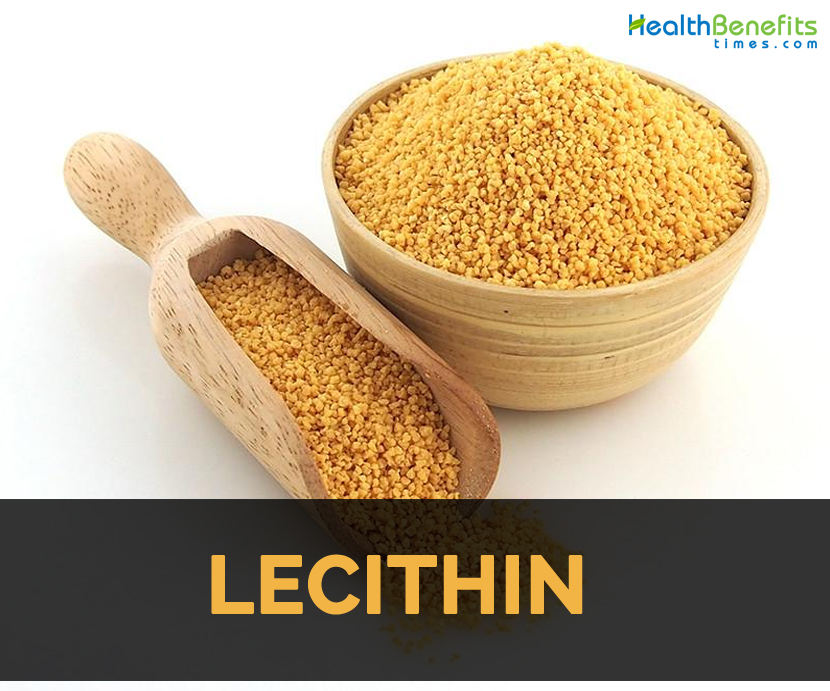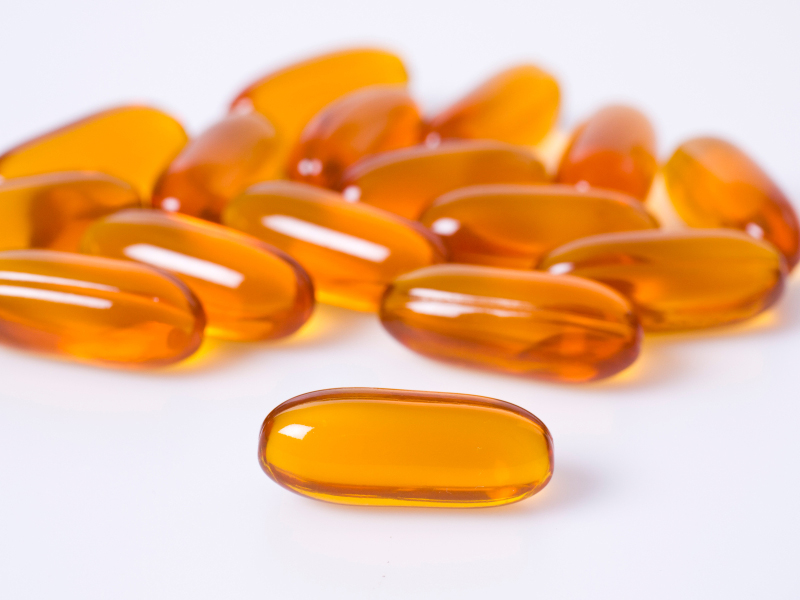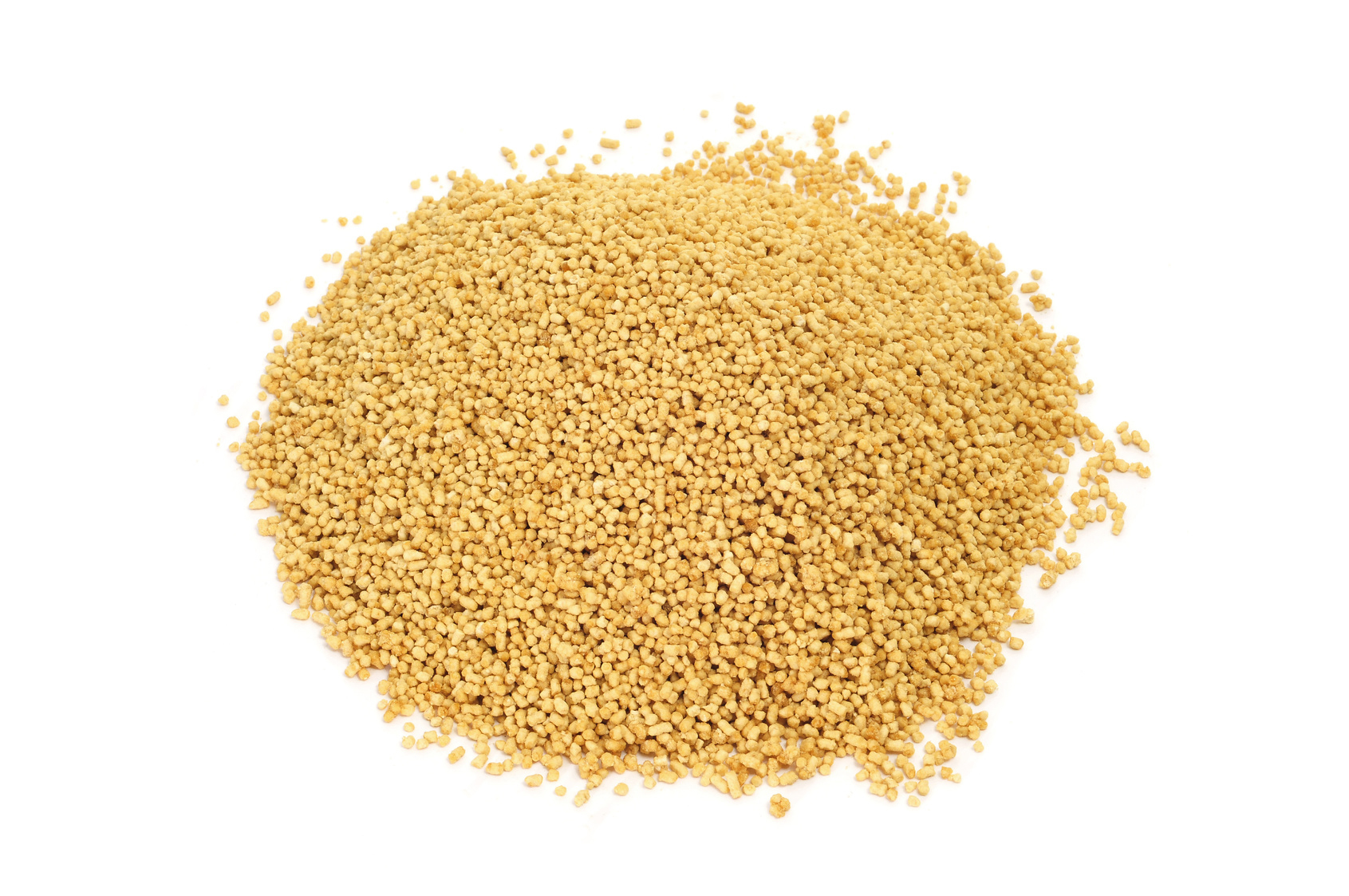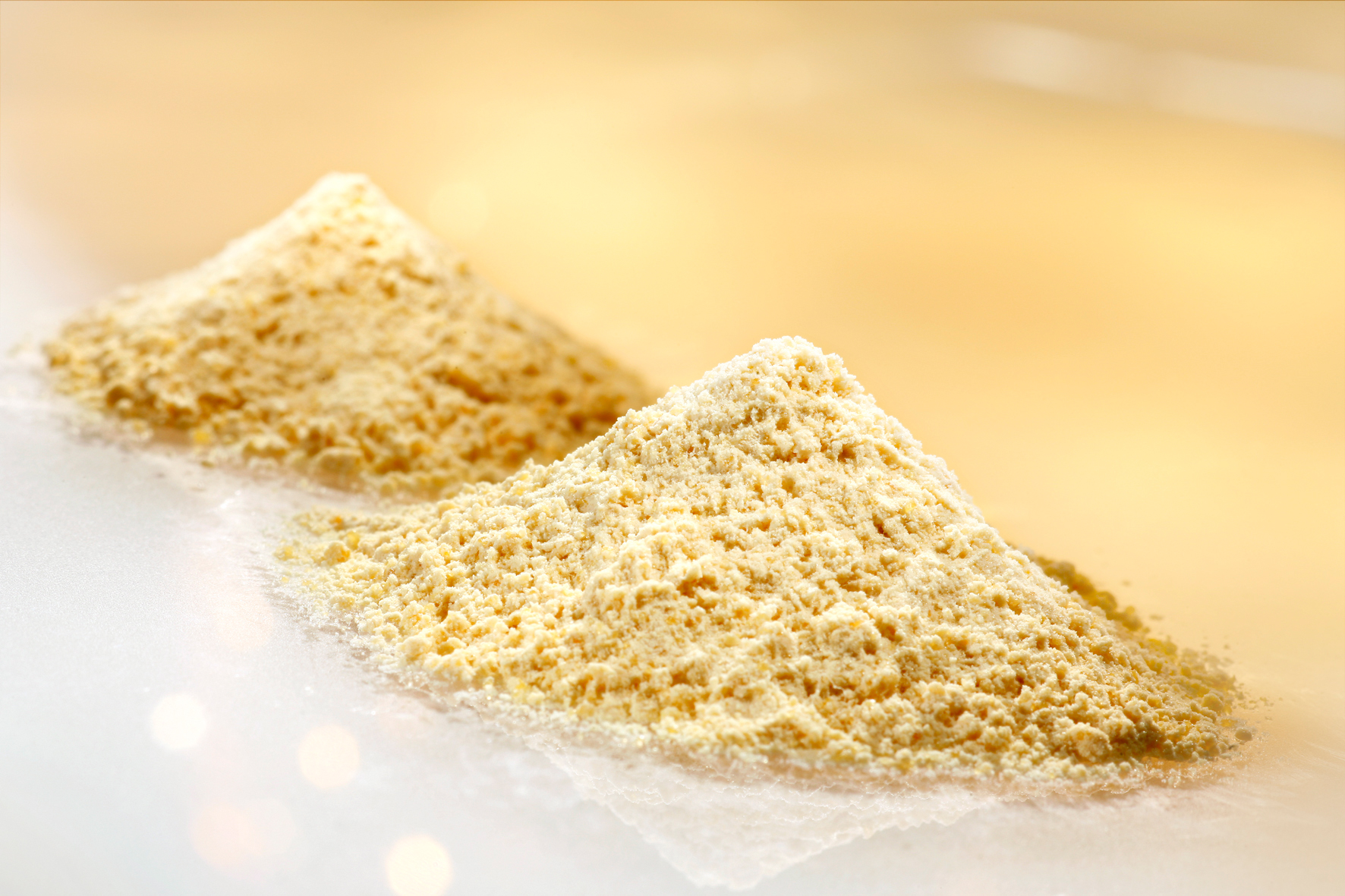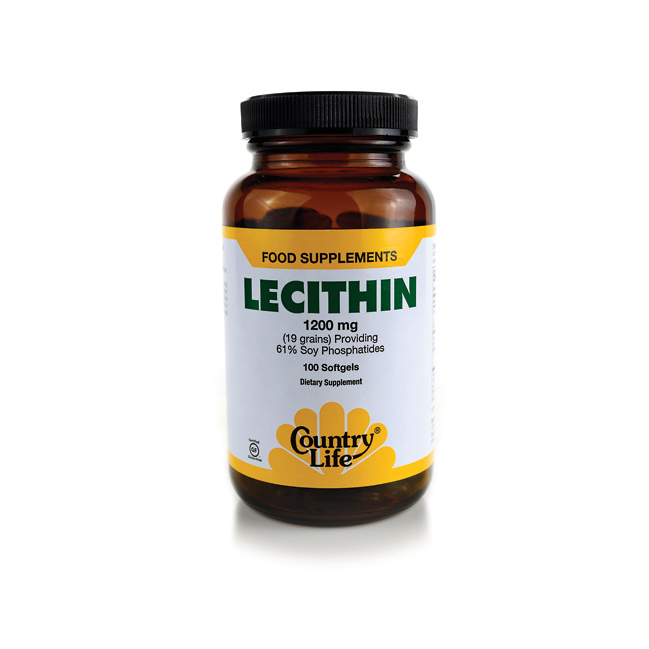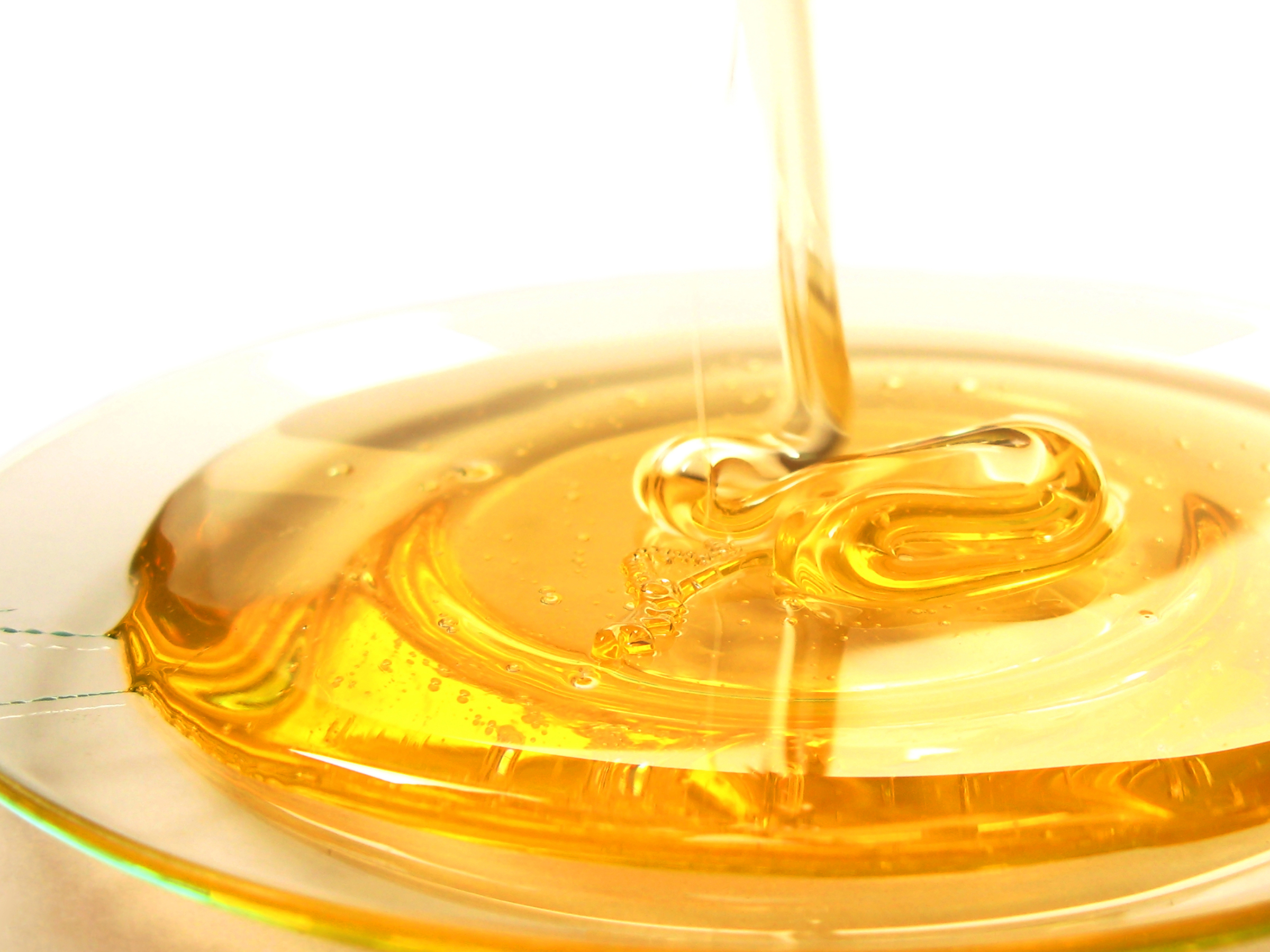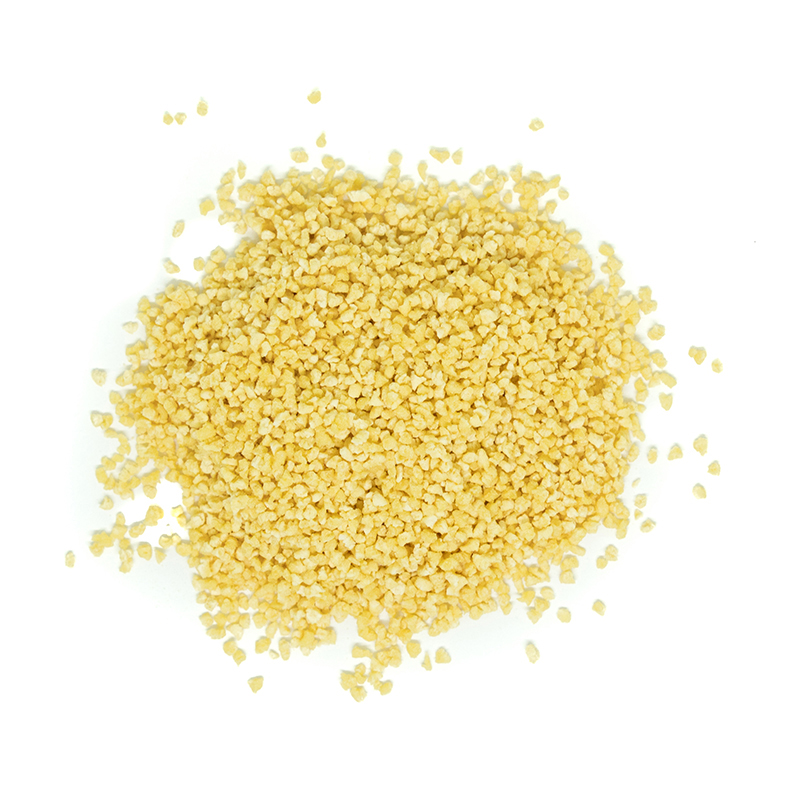The generic term is designate to any group of yellow-brownish fatty substances occurring in plant and animal tissues which are amphiphilic attracting both water and fatty substances. It is used to smoothen food textures, homogenizing liquid mixtures, dissolving powders and repelling sticking materials. They are the mixture of glycerophospholipids such as phosphatidylethanolamine, phosphatidylcholine, phosphatidic acid and phosphatidylinositol.
Firstly, it was isolated in 1845 by French chemist and pharmacist Theodore Gobley. He named phosphatidylcholine lecithine in 1850. Originally gobley isolated lecithin from egg yolk λέκιθος lekithos is “egg yolk” in Ancient Greek and established complete chemical formula in 1874 of phosphatidylcholine. He had demonstrated lecithin in various biological matters such as venous blood in human lungs, human brain tissue, bile, fish roe, fish eggs, sheep brain and chicken. It could be extracted chemically with the use of solvents such as ethanol, hexane, petroleum ether, acetone, benzene, etc. or extraction could be done mechanically. Usually available from sources such as eggs, soybeans, marine sources, cottonseed, rapeseed and sunflower. It is an excellent emulsifier having low solubility in water.
The phospholipids in aqueous solution form either bilayer sheets, liposomes, lamellar structures or micelles depending on temperature and hydration. Lecithin is sold as a dietary supplement and food additive. It is used in cooking as emulsifier and prevents sticking.
It comprises of cholines, phosphoric acid, two fatty acids, esters of glycerol, position, chain length and degree of unsaturation of these acids vary which results in various lecithins having various biological functions. When exposed to air, pure lecithin is waxy and white. Commerical lecithin is brown to light yellow and the consistency differs from plastic to liquid.
Sources of Lecithin
1. Animal based lecithin
All body cells possess phospholipids. Some common animal phospholipids are sphingomyelin, phosphatidylcholine, phosphatidylserine, phosphatidylethanolamine, phosphatidylinositol and other glycerol phospholipids of complex fatty acid composition. Milk, egg yolk and brains serves as animal sources of lecithin.
a. Eggs
Eggs have phospholipids which are found mainly in yolk. Phospholipids have 10% of wet weight of egg yolk. Egglecithin has main components such as phosphatidylethanolamine and phosphatidycholine. It also contains sphingomyelin, lysophosphatidylcholine and neutral lipids in significant quantities.
b. Milk
Milk has 1% of total lipid content in phospholipid content. Phospholipids are crucial in milk for emulsifying fat in water. Milk has two main groups belong to class phospholipids such as sphingolipids (29%) and Glycerophospholipids (70%).
c. Brain
Brain is an excellent source of phospholipids and with spinal cord, it possesses the highest content of phospholipid content of central nervous system and in animal organs.
2. Plant based lecithin
a. Soybean
Soybean is the main commercial source of lecithin. This lecithin contains 65 to 75% phospholipids. It is used due to its availability and emulsifying behavior, taste and behavior. Soybean lecithin has various compositions of phospholipids due to various manufacturing conditions.
b. Corn
The phospholipids amount varies from 2-5% which depends on maize variety. Phospholipids have 61% of corn lecithin. The chemical compositions noted were similar for corn and soy phosphatidylcholine and phosphatidylinositol. Corn phospholipids and glycolipids have low percentage of linolenic acid and high saturated. Linoleic acid in corn differs from 42 to 70% that depends on variety of maize. 88% of phytic acid could be found in germ of corn which is extracted as part of lecithin fraction.
c. Cottonseed
Phospholipids found in cottonseeds are similar to soybeans except low content of linolenic acid and high content of saturated fatty acids. Due to the low content of linolenic acid, it is stable to oxidation or rancidity in comparison to soybean lecithin.
d. Sunflower
Lecithin found in sunflower possesses mild taste with emulsifying properties similar to soybean lecithin. It is also used in manufacturing cosmetics and foods by refining and fractionation and modifications. Sunflower lecithin possesses 43% phospholipids, 33% oil and 23% of compounds such as complex carbohydrates and glycolipids.
Health Benefits of Lecithin
Here are some health benefits of Lecithin:
- Promote cognition
Lecithin is an essential for cognitive health and repair processes in brain after converting into neurotransmitter acetylcholine. It could lower cognitive decline and prevent neurodegenerative diseases such as Parkinson’s and Alzheimer’s disease.
- Enhance immunity
This compound helps to increase metabolic and vascular health by protecting body against unnecessary inflammation and infections.
- Healthy heart
Lecithin helps to promote cholesterol levels by lowering plaque buildup in blood vessels and arteries and lowering the chances of heart attack, atherosclerosis and stroke. High cholesterol results in many heart problems such as heart attack. Lecithin promotes liver production of good cholesterol which eradicates other forms of cholesterol from body and its adequate amounts protect from stroke and heart attack.
- Skin health
Phospholipids are antioxidant in nature preventing negative effects of free radicals in the body including skin. The adequate amounts of lecithin could prevent age spots and wrinkles.
- Men’s health
Phospholipid could promote circulation and enhance cardiovascular health that could promote virility and sex drive in men.
- Assist digestion
Lecithins are used as an emulsifier and additive in foods and assist to promote digestive function with the nutrient absorption by small intestines.
- Mental health
Lecithin has phospholipid known as phosphatidylinositol which is a natural compound that effectively treats panic disorder. The study conducted in 6 mania patients showed that 5 experienced better mental health with an intake of pure lecithin. The Chinese boy, 16 year old with bipolar disorder, mild form of mania and monthly insomnia took supplements of phosphatidylcholine for 14 months and his sleeping patterns returned normal and the mania symptoms got recovered. The meta analysis of lecithin showed effectiveness as alternative and complementary medicine for treating bipolar disorder.
- Lowers stress
Lecithin promotes body’s resilience to stress. The study was conducted in 4 groups of 20 individuals. The participants were given 400, 600, or 800 mg of lecithin with phosphatidylserine or placebo for 3 weeks. The group with 400 mg resulted lower stress response to stress test in comparison to placebo.
- Colitis treatment
Lecithin derivative phosphatidylcholine forms 70% of total fats found in mucus layer covering inner surface of intestine. The layer acts as a protective barrier assisting to prevent digestive tract from bacteria.
- Helps to lose weight
The lecithin is able to emulsify fats i.e. it could enter body fat cells and breakdown fat therein. However, lecithin could be used as a part of weight loss with different mechanism. It could assist in breakdown of blood and dietary fats into smaller molecules. It is essential to break dietary or blood fats into fatty acids. This assist the body is able to use fatty acids as an energy fuel than storing fats in adipose tissue.
- Eliminate bile
Bile being a digestive substance is secreted by gallbladder that assists in emulsifying dietary fats. Bile comprises of bile acids, cholesterol and lecithin. Lecithin is regarded as a natural fat emulsifier and protects from devastating effects of bile salts. Research showed that bile from patients having gallstones possess less lecithin. The lower presence of lecithin levels are the cause for gallstones development.
Precautions
Excessive intake of lecithin causes nausea, increased salivation, anorexia, diarrhea, abdominal pain, fishy body odor and hepatitis. Here are some other side effects of Lecithin:
- Allergies
Soy lecithin is derived from soybean oil which contains soy protein which causes soy allergies. The patients who are sensitive to soybean showed no reaction to soy lecithin. This lecithin poses low risk for people having minor reactivity to soy. It contains immunoglobulin E binding proteins when bind to immune system’s antibodies, it trigger allergic response causing rapid inflammation or digestion discomfort. People who are allergic to soy should take it with caution.
- Blood clot
The study conducted on 60 patients showed that regular dose of soy lecithin promotes blood cell clumping in blood. The blood platelets help to repair damaged blood vessels. Yet, the increased activity of blood platelets is associated to heart problems.
- Increase infertility risk
Soy lecithin possesses plant hormone called phytoestrogen that acts as human hormone estrogen. The research was conducted on pregnant rats with male fetuses and its diet added phytoestrogens. In their development, rats (male) had low sperm count or hormone imbalances.
- Harmful for pregnant women
The diet with soy lecithin supplements showed biological and behavioral defects in offspring causing poor balance and laziness. Lecithin has choline could be the minor cause for concern to pregnant women. The choline extends large intestine and gut bacteria and liver convert into trimethylamine oxide. High content of trimethylamine oxide could promote the chances of heart problems.
- Cause fat build-up
It promotes fat production and storage in mouse cells. The liver cells in human starts the buildup fat storage when lecithin introduced.
How to Eat
- Use it as an additive or for preparing foods.
- In fat spreads and emulsions, it stabilize emulsion, promote spread texture and flavor.
- In bakery and dough, it lowers the requirement of fat and eggs.
- When used in candy bar, it keeps cocoa butter and cocoa from separating.
- Use it as cooking sprays to prevent from sticking.
Other Facts
- The supplements of lecithin are made from soybeans.
- Its supplements are used for treating various medical conditions or health problems but its effectiveness is limited.
- No well documented interactions between medications such as drugs, medications and medical conditions and lecithin has been observed.
References:
https://www.webmd.com/vitamins/ai/ingredientmono-966/lecithin
https://en.wikipedia.org/wiki/Lecithin
https://www.emedicinehealth.com/lecithin/vitamins-supplements.htm
https://www.britannica.com/science/lecithin
http://www.planetayurveda.com/library/lecithin
https://www.chefsteps.com/ingredients/liquid-soy-lecithin
https://www.organicfacts.net/lecithin.html
https://www.selfhacked.com/blog/lecithin/
Comments
| Lecithin Quick Facts | |
|---|---|
| Name: | Lecithin |
| Colors | White |
| Calories | 1663 Kcal./cup |
| Major nutrients | Total Fat (622.86%) Vitamin K (334.08%) Choline (138.73%) Vitamin E (118.87%) |
| Health benefits | Promote cognition, Enhance immunity, Healthy heart, Skin health, Men's health |
| Name | Lecithin |
|---|---|
| Common/English Name | Egg Lecithin, Lécithine de Graine de Soya, Lécithine, Lécithine de Soya, Ovolecithin, Lecitina, Phospholipide de Soja, Ovolécithine, Phospholipide de Soya, Soy Lecithin, Phospholipides de Soya, Soy Phospholipid, Soya Bean Lecithin, Soy Phospholipids, Soya Lecithin, Soybean Lecithin, Vitellin, Vegilecithin, Vitelline |
| Color | White |
| Major Nutritions | Total Fat (lipid) 218 g (622.86%) Vitamin K (phylloquinone) 400.9 µg (334.08%) Choline 763 mg (138.73%) Vitamin E (alpha-tocopherol) 17.83 mg (118.87%) |
| Health Benefits |
|
| Calories in 1 cup (218 g) | 1663 Kcal. |


